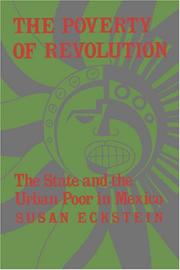| Listing 1 - 10 of 3375 | << page >> |
Sort by
|
Multi
ISBN: 9781786992048 1786992043 9781786992055 9781786992062 9781786992079 Year: 2019 Publisher: London Zed
Abstract | Keywords | Export | Availability | Bookmark
 Loading...
Loading...Choose an application
- Reference Manager
- EndNote
- RefWorks (Direct export to RefWorks)
Home to eighty thousand people, Accra’s Old Fadama neighborhood is the largest illegal slum in Ghana. Though almost all its inhabitants are Ghanaian born, their status as illegal “squatters” means that they live a precarious existence, marginalized within Ghanaian society and denied many of the rights to which they are entitled as citizens. The case of Old Fadama is far from unique. Across Africa, more than half the population now lives in cities, and a lack of affordable housing means that growing numbers live in similar illegal slum communities, often in appalling conditions. Drawing on rich, ethnographic fieldwork, the book takes as its point of departure the narratives that emerge from the everyday lives and struggles of these people, using the perspective offered by Old Fadama as a means of identifying wider trends and dynamics across African slums.Central to Stacey’s argument is the idea that such slums possess their own structures of governance, grounded in processes of negotiation between slum residents and external actors. In the process, Stacey transforms our understanding not only of slums, but of governance itself, moving us beyond prevailing state-centric approaches to consider how even a society’s most marginal members can play a key role in shaping and contesting state power (provided by publisher)
Slums --- #SBIB:39A4 --- Slum clearance --- Housing --- Toegepaste antropologie --- Sociology of environment --- Political sociology --- Accra
Book
ISBN: 1139876112 1108064558 Year: 2013 Publisher: Cambridge : Cambridge University Press,
Abstract | Keywords | Export | Availability | Bookmark
 Loading...
Loading...Choose an application
- Reference Manager
- EndNote
- RefWorks (Direct export to RefWorks)
In the summer of 1902, respected American author Jack London (1876-1916), previously known for his descriptions of life during the Klondike Gold Rush, spent two months living 'down by the docks' in London's East End among the city's poorest residents. During this time he often slept in workhouses or on the streets, seeing first-hand how the impoverished struggled daily for adequate food, clothing and shelter while the rest of the city lived in relative prosperity - a prosperity which the author believed was gained at the expense of the poor. One of the earliest eyewitness descriptions of life in the slums of London, this book would influence later socially minded authors such as George Orwell. The text is also illustrated with photographs of the places and people mentioned, offering an important insight into the living conditions of the poor at the dawn of the twentieth century.
Poor --- Slums --- East End (London, England) --- Social conditions --- Slum clearance --- Housing --- East London (London, England)
Book
ISBN: 9789035135970 Year: 2010 Publisher: Amsterdam,
Abstract | Keywords | Export | Availability | Bookmark
 Loading...
Loading...Choose an application
- Reference Manager
- EndNote
- RefWorks (Direct export to RefWorks)
History of the Netherlands --- anno 1800-1899 --- Slums --- Urban poor --- History --- City dwellers --- Poor --- Slum clearance --- Housing --- Nederland

Abstract | Keywords | Export | Availability | Bookmark
 Loading...
Loading...Choose an application
- Reference Manager
- EndNote
- RefWorks (Direct export to RefWorks)
Housing --- -Affordable housing --- Homes --- Houses --- Housing needs --- Residences --- Slum clearance --- Urban housing --- City planning --- Dwellings --- Human settlements --- Social aspects --- -Housing

ISBN: 1400853915 069160410X 0691022828 9781400853915 Year: 1988 Publisher: Princeton, New Jersey : Princeton University Press,
Abstract | Keywords | Export | Availability | Bookmark
 Loading...
Loading...Choose an application
- Reference Manager
- EndNote
- RefWorks (Direct export to RefWorks)
The plight of the urban poor in Mexico has changed little since World War II, despite the country's impressive rate of economic growth. Susan Eckstein considers how market forces and state policies that were ostensibly designed to help the poor have served to maintain their poverty. She draws on intensive research in a center city slum, a squatter settlement, and a low-cost housing development.Originally published in 1977.The Princeton Legacy Library uses the latest print-on-demand technology to again make available previously out-of-print books from the distinguished backlist of Princeton University Press. These editions preserve the original texts of these important books while presenting them in durable paperback and hardcover editions. The goal of the Princeton Legacy Library is to vastly increase access to the rich scholarly heritage found in the thousands of books published by Princeton University Press since its founding in 1905.
Urban poor --- Slums --- Squatters --- Housing --- Slum clearance --- Occupancy (Law) --- Public lands --- Squatter settlements --- City dwellers --- Poor --- E-books
Book
ISBN: 1474425933 147442192X 1474406882 1474406874 9781474406871 9781474406864 1474406866 9781474406888 9781474406888 Year: 2016 Publisher: [Place of publication not identified] : Edinburgh University Press,
Abstract | Keywords | Export | Availability | Bookmark
 Loading...
Loading...Choose an application
- Reference Manager
- EndNote
- RefWorks (Direct export to RefWorks)
A polycentric approach to the representation of slums in world cinemaNear to one billion people call slums their home, making it a reasonable claim to describe our world as a ‘planet of slums.’ But how has this hard and unyielding way of life been depicted on screen? How have filmmakers engaged historically and across the globe with the social conditions of what is often perceived as the world’s most miserable habitats?Combining approaches from cultural, globalisation and film studies, Igor Krstic outlines a transnational history of films that either document or fictionalise the favelas, shantytowns, barrios poulares or chawls of our ‘planet of slums’, exploring the way accelerated urbanisation has intersected with an increasingly interconnected global film culture. From Jacob Riis’ How The Other Half Lives (1890) to Danny Boyle’s Slumdog Millionaire (2008), the volume provides a number of close readings of films from different historical periods and regions to outline how contemporary film and media practices relate to their past predecessors, demonstrating the way various filmmakers, both north and south of the equator, have repeatedly grappled with, rejected or continuously modified documentary and realist modes to convey life in our ‘planet of slums’.Read the introduction to Slums on Screen for free (pdf)Key FeaturesTraces the global flows of film culture through emphasising the transnational impact of important film movementsFocuses on two important ‘cinematic megacities’ (Rio de Janeiro and Mumbai) to outline how global film cultural currents become modified according to a specific local contextCombines approaches from cultural, globalisation and film studies to reconstruct world cinema’s ‘planet of slums’Adds a new perspective on cultural (world cinema) and social (cityward migration) globalisation processes"
Motion pictures --- Cities and towns in motion pictures. --- Slums. --- Slum clearance --- Housing --- History. --- History and criticism --- PERFORMING ARTS / Film / General.
Book
ISBN: 9027425809 Year: 1991 Publisher: Utrecht Het Spectrum
Abstract | Keywords | Export | Availability | Bookmark
 Loading...
Loading...Choose an application
- Reference Manager
- EndNote
- RefWorks (Direct export to RefWorks)
Sociology of environment --- Netherlands --- Housing --- -Affordable housing --- Homes --- Houses --- Housing needs --- Residences --- Slum clearance --- Urban housing --- City planning --- Dwellings --- Human settlements --- Social aspects --- -Housing --- Social policy
Book
ISBN: 293028014X 9782930280141 Year: 2001 Publisher: Malonne: Feuilles familiales,
Abstract | Keywords | Export | Availability | Bookmark
 Loading...
Loading...Choose an application
- Reference Manager
- EndNote
- RefWorks (Direct export to RefWorks)
Housing --- -Affordable housing --- Homes --- Houses --- Housing needs --- Residences --- Slum clearance --- Urban housing --- City planning --- Dwellings --- Human settlements --- Social aspects --- Conferences - Meetings --- -Conferences - Meetings --- -Housing --- -Housing -
Periodical
ISSN: 23760923 Year: 1978 Publisher: Ames, Iowa : [St. Paul, MN] : [Abingdon, Oxfordshire, UK] : American Association of Housing Educators, [University of Minnesota, Department of Design, Housing, and Apparel] Routledge, Taylor & Francis Group
Abstract | Keywords | Export | Availability | Bookmark
 Loading...
Loading...Choose an application
- Reference Manager
- EndNote
- RefWorks (Direct export to RefWorks)
Housing --- Housing. --- Study and teaching. --- Affordable housing --- Houses --- Housing needs --- Residences --- Slum clearance --- Urban housing --- Homes --- Social aspects --- City planning --- Dwellings --- Human settlements
Book
ISBN: 2735110915 2735119211 Year: 2017 Publisher: Paris : Éditions de la Maison des sciences de l’homme,
Abstract | Keywords | Export | Availability | Bookmark
 Loading...
Loading...Choose an application
- Reference Manager
- EndNote
- RefWorks (Direct export to RefWorks)
La favela, cet envers du décor de la « Cité merveilleuse », a beaucoup contribué à faire de Rio de Janeiro - et plus largement du Brésil - la terre de tous les contrastes. En ouvrant ce livre, le lecteur français pourrait donc à bon droit y voir une invitation au voyage dans un monde qui éveille sa curiosité, mais lui demeure en définitive étranger. Pourtant c'est plus encore au mouvement inverse, de l'exotique au familier, du lointain au proche, que cet ouvrage nous invite. Son propos n'est pas tant d'ajouter une nouvelle pierre à l'édifice déjà impressionnant des connaissances sur les favelas, ni d'en faire la synthèse, que d'en expliciter les conditions sociales de production. Car la favela s'« invente » au fil d'une histoire séculaire qui, du mythe d'origine en passant par le discours scientifique, mène contre toute attente à une consécration culturelle et médiatique. Analysant à la fois cette forme particulière d'habitat populaire et les réseaux d'acteurs et d'institutions qui en ont façonné l'image, Licia Valladares nous offre une contribution originale à l'histoire des sciences sociales brésiliennes, de la Première République à nos jours.
Squatter settlements --- Bidonvilles --- History --- Histoire --- Slums --- Sociology, Urban --- Poor --- History. --- Urban sociology --- Cities and towns --- Slum clearance --- Housing --- bidonvilles --- pauvreté --- histoire --- logement --- sociologie urbaine --- Brésil --- représentation sociale
| Listing 1 - 10 of 3375 | << page >> |
Sort by
|

 Search
Search Feedback
Feedback About UniCat
About UniCat  Help
Help News
News